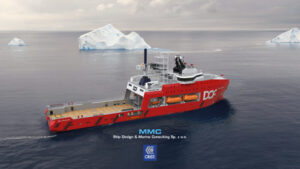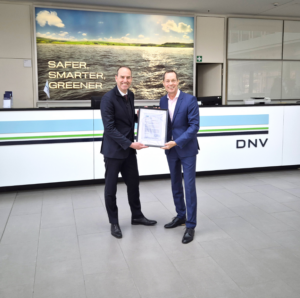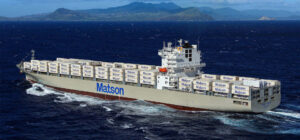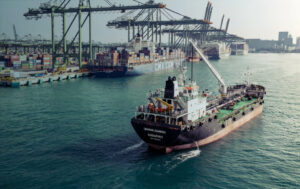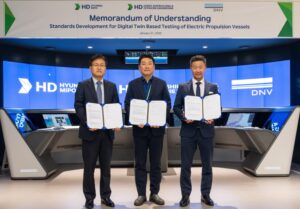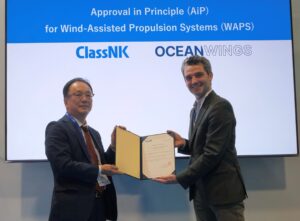Kongsberg Maritime gets DNV type approval for its EPL/ShaPoLi
Kongsberg Maritime has won approval for its engine power limitation /shaft power limitation (EPL/ShaPoLi) functionality as the industry looks to cut engine power as a way of meeting emissions regulations.
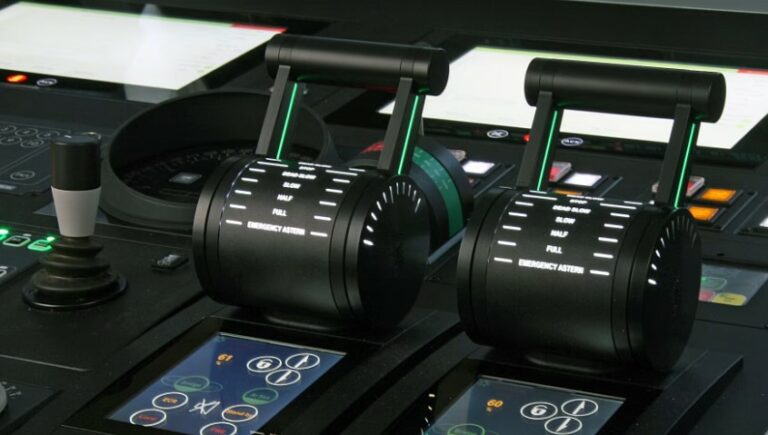
The type approval was secured from DNV classification society at SMM trade fair in Hamburg on Thursday, 8 September.
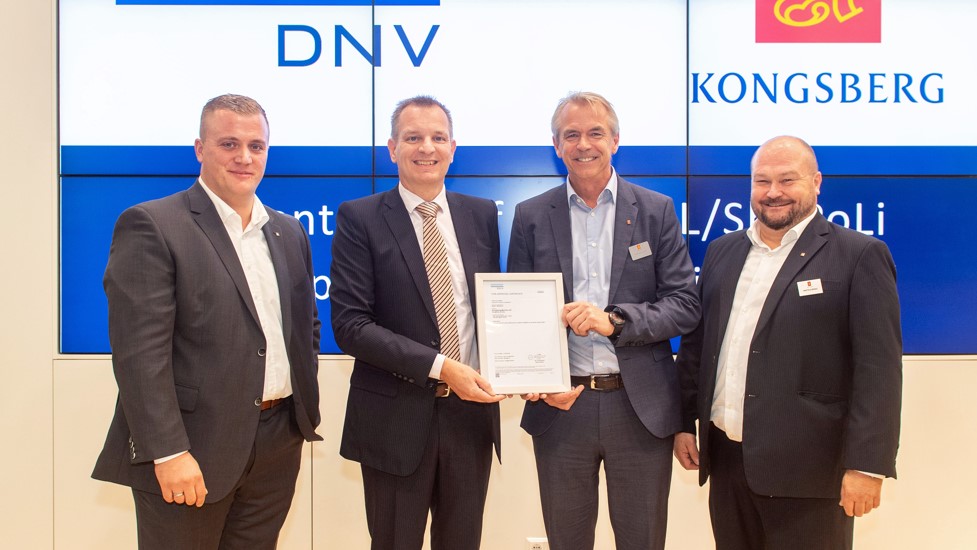
The approval covers Kongsberg Maritime’s EPL and ShaPoLi software implemented in AutoChief C20 or AutoChief 600, including a dedicated panel for activation of unlimiting mode and the necessary indicator. It is based on the specifications in MEPC.335(76) and has been specifically designed to streamline the approval and testing process.
The EPL/ShaPoLi software can be added in addition to existing fuel limiters. The EPL function calculates engine power output in real-time, compares the engine power output to the engine power limit, and limits the fuel index to meet the vessel’s engine power limit. The ShaPoLi system limits the output power to a propeller shaft.
“Decarbonizing in shipping is the industry’s most important task, with shipowners focussing on implementing energy efficiency solutions that will help them meet the IMO’s Greenhouse Gas (GHG) reduction goals of reducing carbon intensity 40% by 2030,” said Morten Stanger, Vice President Sales in Kongsberg Maritime.
“At Kongsberg Maritime we have over 3000 active C20/600 governor systems for engines and with this new system have developed a time and cost-efficient Engine Power Limitation (EPL) or Shaft Power Limitation (ShaPoLi) solution that functions by utilizing the ship’s existing governor system. This will help shipowner to reduce emissions and comply with the Energy Efficiency Existing Ship Index (EEXI) regulations, due to enter into force in January 2023.”
“To keep vessels in compliance and competitive, owners and operators are looking for new and innovative solutions that can help meet incoming regulations, in a way that is reliable, practical and ensures safety,” says Dr. Fabian Kock, Head of Environmental Technologies Air at DNV.
“Type approval by DNV can build customers confidence by demonstrating that systems have been assessed and approved to DNV’s industry leading and rigorous standards and international regulations.”
The global maritime industry is introducing operational measures such as limiting engine output and installing energy-saving devices to meet stringent greenhouse gas regulations.
Close to 80% of bulk carriers will not meet EEXI regulations pushing a great majority to opt for engine power limitations. Also, we are seeing liner companies redesigning their operating loops with lower speeds to meet environmental regulations.
During the trade fair, Kongsberg Digital, a subsidiary of KONGSBERG, and Shell Marine signed an MoU on new ways to accelerate decarbonization initiatives and assist the energy transition in the maritime industry.
“The energy transition for the maritime sector will involve new types of fuel, new technology and new ways of working, as the industry pushes towards decarbonization. KDI and Shell both see the urgent need to support their maritime customers through the energy transition. In the short run, the marine industry needs to operate vessels in a more efficient manner through increased uptime and reliability, while ensuring environmental compliance”, says Anders Bryhni, VP Digital Ocean Applications in Kongsberg Digital.
The new partnership will see KDI bring its digital data infrastructure solutions, applications and open ecosystems together with Shell’s portfolio of Technical and Digital Services.
The MoU builds on a longstanding partnership between KDI and Shell in the energy sector, as KDI provides Shell with its digital twin Kognitwin on several Shell assets, including the Nyhamna Gas facility in Norway.

